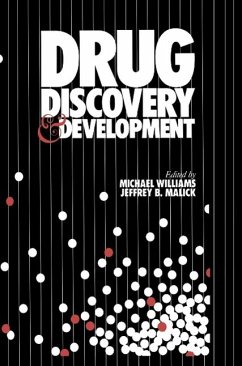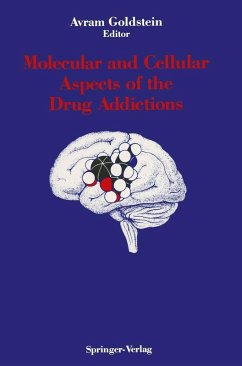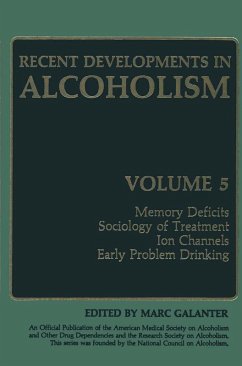
Opiate Receptors and Antagonists (eBook, PDF)
From Bench to Clinic
Redaktion: Dean, Reginald; Negus, S. Stevens; Bilsky, Edward J.
Versandkostenfrei!
Sofort per Download lieferbar
112,95 €
inkl. MwSt.
Weitere Ausgaben:

PAYBACK Punkte
56 °P sammeln!
The evolution in our understanding of Opioid receptors and their subtypes is intimately linked to the development of new pharmacological treatments for diseases and disorders as diverse as addiction, self-injurious behavior, pain, cancer, inflammation, eating disorders, traumatic injury, pruritis and movement disorders. The contributions contained in Opioid Receptors and Antagonists: From Bench to Clinic represent efforts from leading international scientists and clinicians making use of the latest information emerging from the study of the opioid-receptor system. The authors use a variety of ...
The evolution in our understanding of Opioid receptors and their subtypes is intimately linked to the development of new pharmacological treatments for diseases and disorders as diverse as addiction, self-injurious behavior, pain, cancer, inflammation, eating disorders, traumatic injury, pruritis and movement disorders. The contributions contained in Opioid Receptors and Antagonists: From Bench to Clinic represent efforts from leading international scientists and clinicians making use of the latest information emerging from the study of the opioid-receptor system. The authors use a variety of experimental and clinical approaches involving the fields of molecular biology, biochemistry, anatomy, pharmacology, behavioral neuroscience and psychiatry to illustrate rapidly developing experimental and therapeutic areas. Highlights include characterization of opioid receptors, chemistry and pharmacology of opiod antagonists for various receptor subtypes (Mu, Kappa, and Delta), discussion of therapeutic uses of opiod antagonists and exploration of innovative approaches to therapeutic drug delivery.
Opioid Receptors and Antagonists: From Bench to Clinic offers a comprehensive view of recent work on opiod antagonist applications and uses in various clinical treatments. Emphasis is placed on disorders of the reward system. This volume serves as reference while also illuminating prospects for future research.
Opioid Receptors and Antagonists: From Bench to Clinic offers a comprehensive view of recent work on opiod antagonist applications and uses in various clinical treatments. Emphasis is placed on disorders of the reward system. This volume serves as reference while also illuminating prospects for future research.
Dieser Download kann aus rechtlichen Gründen nur mit Rechnungsadresse in A, B, BG, CY, CZ, D, DK, EW, E, FIN, F, GR, HR, H, IRL, I, LT, L, LR, M, NL, PL, P, R, S, SLO, SK ausgeliefert werden.













